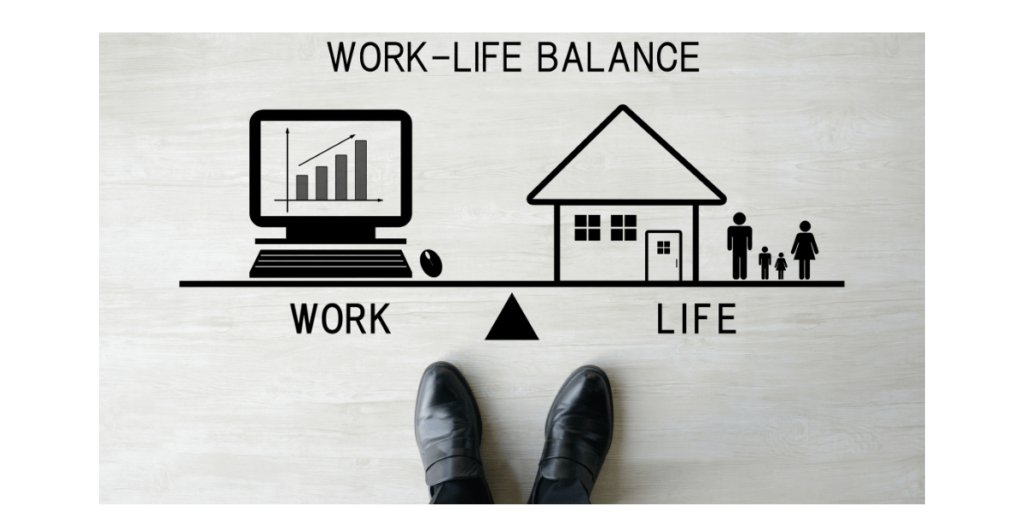10 Essential Self-Care Strategies for Overworked Professionals
In today’s fast-paced world, it is easy for professionals to find themselves overwhelmed by the demands of their work. The constant pressure to meet deadlines, attend meetings, and achieve targets can lead to chronic stress and burnout. This is where self-care comes into play, acting as a crucial buffer against these negative consequences. In our relentless pursuit of success, we often neglect the most important asset—ourselves. Therefore, it’s crucial to integrate self-care into our daily routines to maintain physical, mental, and emotional well-being.
Self-care is not merely about indulgence; it’s about self-preservation and productivity. When we take the time to care for ourselves, we are better equipped to handle the challenges that come our way. Overworked professionals often overlook self-care, seeing it as a luxury rather than a necessity. However, incorporating self-care strategies can enhance overall wellness and improve job performance.
Burnout and chronic stress can significantly impact one’s quality of life, leading to decreased productivity, strained relationships, and adverse health effects. Recognizing the signs and implementing practical self-care strategies can be a game-changer. This article aims to provide you with ten essential self-care strategies specifically tailored for overworked professionals.
By the end of this comprehensive guide, you will have a clearer understanding of why self-care is essential and how to incorporate various practices into your daily routine. From stress management techniques to the benefits of mindfulness and physical activity, this article covers all aspects crucial for maintaining a balanced and healthy life.
Why Self-Care is Crucial for Overworked Professionals
Self-care serves as a preventive measure against the detrimental effects of prolonged stress and overwork. It helps in maintaining both physical health and emotional stability. Overworked professionals are prone to neglect their well-being, focusing solely on work demands, which can lead to severe health issues over time.
Firstly, self-care allows individuals to recharge. Just like any other high-performance machine, the human body and mind require regular maintenance. Without it, even the most dedicated professionals can experience fatigue, reduced efficiency, and overall dissatisfaction. Taking time to relax and decompress can replenish your energy and enhance your focus, ultimately making you more productive.
Secondly, self-care plays a significant role in mental health. Engaging in activities that bring joy and relaxation can significantly reduce levels of anxiety and depression. Overworked professionals are particularly susceptible to mental health issues, and integrating self-care practices can provide a much-needed respite from the pressures of work. Activities such as reading, meditating, or spending time with loved ones act as a mental detox, helping to improve mood and cognitive functions.
Lastly, self-care fosters a better work-life balance. Professionals often blur the lines between work and personal life, leading to a never-ending cycle of stress. Establishing boundaries and prioritizing personal time is essential for long-term well-being. When you consciously allocate time for self-care, you teach yourself to value your health and happiness, which in turn positively impacts all areas of your life.
Recognizing Signs of Burnout
Burnout is a state of emotional, physical, and mental exhaustion caused by prolonged stress. It is essential to recognize the signs of burnout early on to take appropriate action and mitigate its effects. Overworked professionals are at a high risk of burnout, and neglecting the symptoms can lead to severe consequences.
The first sign of burnout is chronic fatigue. Feeling tired even after a full night’s sleep, or experiencing a constant lack of energy, are clear indicators that your body and mind are under too much stress. Accompanied by physical symptoms such as headaches or gastrointestinal issues, chronic fatigue can severely impact daily productivity and overall health.
Another significant sign of burnout is emotional exhaustion. Feeling detached from your work, experiencing a lack of motivation, and having a generally negative attitude towards your job are common indicators. This emotional drain can extend to your personal life, affecting relationships and increasing feelings of isolation and despair.
Lastly, decreased performance is a red flag for burnout. If you find yourself unable to concentrate, make decisions, or complete tasks efficiently, it is time to reassess your workload and incorporate self-care. Overworking may lead to mistakes and a drop in the quality of your work, causing a vicious cycle of stress and diminished performance.
Here’s a table that highlights common signs of burnout:
| Signs of Burnout | Indicators |
|---|---|
| Chronic Fatigue | Constant tiredness, lack of energy |
| Emotional Exhaustion | Detachment, lack of motivation, negativity |
| Decreased Performance | Difficulty concentrating, indecisiveness |
Stress Management Techniques
Effective stress management is critical for maintaining health and productivity. Overworked professionals often find themselves overwhelmed, making it crucial to adopt strategies that can help manage stress levels. Implementing these techniques can bring about significant improvements in your quality of life.
Mindfulness and Meditation: Practicing mindfulness and meditation can help you stay present and reduce anxiety. Simple techniques like deep breathing and body scanning can calm the mind and alleviate stress. Dedicating a few minutes each day to these practices can create a noticeable difference in how you handle stress.
Physical Exercise: Physical activity is a proven stress-buster. Engaging in regular exercise, such as jogging, swimming, or yoga, releases endorphins, which elevate mood and reduce stress. Even a short walk during lunch breaks can rejuvenate your mind and help you tackle the rest of the day with renewed energy.
Organizing and Prioritizing: Creating a to-do list and prioritizing tasks can significantly reduce stress levels. Break down larger tasks into smaller, manageable chunks and assign deadlines to each. This not only helps in reducing the workload but also ensures that you stay focused and organized.
Importance of Proper Nutrition and Hydration
Proper nutrition and staying hydrated are fundamental components of self-care. Overworked professionals often skip meals or opt for unhealthy snacks due to time constraints, leading to poor nutritional habits. However, prioritizing a balanced diet and adequate hydration can enhance overall well-being and productivity.
Balanced Diet: A balanced diet provides the essential nutrients needed for optimal functioning. Incorporate a variety of fruits, vegetables, lean proteins, and whole grains into your meals. Avoid processed foods and excessive caffeine consumption, as they can lead to energy crashes and increased stress levels.
Regular Meals: Skipping meals can impair cognitive functions and lead to irritability. Ensure you eat regular, well-balanced meals throughout the day to maintain energy levels. Carry healthy snacks like nuts, fruits, or yogurt to avoid reaching for junk food during busy periods.
Hydration: Staying hydrated is crucial for maintaining concentration and overall health. Dehydration can lead to fatigue, headaches, and decreased cognitive performance. Make it a habit to drink water throughout the day, aiming for at least 8 glasses (2 liters) daily.
The following table includes some tips on how to improve your diet and hydration:
| Nutritional Tips | Hydration Tips |
|---|---|
| Eat a variety of foods | Drink 8 glasses of water daily |
| Avoid processed foods | Limit caffeine intake |
| Include fruits and veggies | Carry a water bottle |
How to Prioritize Sleep
Quality sleep is a cornerstone of good health and well-being. Overworked professionals often sacrifice sleep to meet deadlines, resulting in increased stress and decreased productivity. Prioritizing sleep is essential for maintaining physical and mental health.
Establish a Routine: Developing a consistent sleep schedule helps regulate the body’s internal clock. Aim to go to bed and wake up at the same time every day, even on weekends. This consistency promotes better sleep quality and overall health.
Create a Sleep-Friendly Environment: Transform your bedroom into a calming sanctuary. Keep the room dark, quiet, and cool to enhance sleep quality. Investing in a comfortable mattress and pillows can also make a significant difference in how well you sleep.
Limit Screen Time: Exposure to screens before bedtime can interfere with your ability to fall asleep. The blue light emitted by phones, tablets, and computers can disrupt the production of melatonin, a hormone that regulates sleep. Try to avoid screens at least an hour before bedtime and engage in relaxing activities like reading or meditating.
Developing Mindfulness and Meditation Habits
Mindfulness and meditation are powerful tools for reducing stress and enhancing overall well-being. These practices involve focusing on the present moment and cultivating a sense of awareness and calm. Overworked professionals can greatly benefit from integrating mindfulness and meditation into their daily routines.
Mindfulness Practices: Mindfulness involves paying attention to the present moment without judgment. Simple practices like deep breathing, body scanning, and mindful walking can help you stay grounded. Regular mindfulness practice can improve focus, reduce stress, and enhance emotional regulation.
Meditation Techniques: Meditation is a practice of quieting the mind and achieving a state of relaxation. Techniques such as guided meditation, mindfulness meditation, and loving-kindness meditation can be highly effective in reducing stress and promoting inner peace. Start with just a few minutes a day and gradually increase the duration as you become more comfortable.
Consistency is Key: Like any skill, mindfulness and meditation require consistent practice to yield results. Set aside dedicated time each day for these activities, even if it’s just a few minutes. Over time, you’ll notice improvements in your ability to manage stress and maintain a sense of calm.
The Benefits of Regular Physical Activity
Regular physical activity is a cornerstone of overall health and well-being. For overworked professionals, incorporating exercise into their daily routines can provide numerous benefits, from reducing stress to enhancing productivity.
Stress Reduction: Physical activity is a natural stress reliever. It releases endorphins, which are known as “feel-good” hormones, helping to elevate mood and reduce anxiety. Activities like jogging, swimming, or even taking a brisk walk can provide a much-needed break from work-related stress.
Improved Cognitive Function: Exercise has been shown to enhance cognitive functions such as memory, concentration, and problem-solving skills. Engaging in regular physical activity can boost your brainpower, making you more productive and efficient in your work.
Overall Health Benefits: Regular exercise contributes to overall physical health by maintaining a healthy weight, improving cardiovascular health, and strengthening muscles and bones. It also enhances sleep quality and boosts the immune system, reducing the risk of illness and absenteeism.
Setting Boundaries to Maintain Personal Time
Setting boundaries is crucial for maintaining a healthy work-life balance. Overworked professionals often struggle to separate work from personal time, leading to increased stress and burnout. Establishing clear boundaries can help protect your personal time and well-being.
Define Work Hours: Establishing clear work hours helps create a separation between work and personal life. Communicate these boundaries to colleagues and supervisors, and stick to them as much as possible. Avoid working late into the night or on weekends unless absolutely necessary.
Create a Dedicated Workspace: If you work from home, designate a specific area for work activities. This physical separation helps signal to your brain when it’s time to work and when it’s time to relax. Avoid working from the couch or bed, as this can blur the lines between work and rest.
Learn to Say No: Overcommitting can lead to excessive stress and burnout. It’s essential to recognize your limits and learn to say no when necessary. Prioritize tasks and delegate when possible to ensure that you have time for self-care and personal activities.
Engaging in Hobbies and Creative Activities
Engaging in hobbies and creative activities is an excellent way to unwind and recharge. Overworked professionals often neglect their passions and interests due to time constraints. However, dedicating time to hobbies can significantly improve mental health and overall well-being.
Stress Relief: Hobbies and creative activities provide a healthy outlet for stress. Whether it’s painting, gardening, cooking, or playing a musical instrument, these activities allow you to focus on something enjoyable and divert your mind from work-related pressures.
Enhanced Creativity: Engaging in creative activities stimulates the brain and enhances creativity. This can translate to better problem-solving skills and innovative thinking in your professional life. Allowing yourself to explore new ideas and express creativity can lead to fresh perspectives and increased job satisfaction.
Improved Mood: Pursuing hobbies that bring joy and fulfillment can boost your mood and overall happiness. Doing something you love helps release dopamine, a neurotransmitter associated with pleasure and reward. This can contribute to a more positive outlook on life and work.
Building a Supportive Social Network
A strong social support network is essential for maintaining mental and emotional well-being. Overworked professionals may find it challenging to nurture relationships, but investing time in building a supportive network can have profound benefits.
Emotional Support: Having friends, family, and colleagues who provide emotional support can help you navigate through stressful times. Talking about your challenges and receiving encouragement can alleviate feelings of isolation and anxiety.
Networking Opportunities: Building a professional network can open doors to new opportunities and resources. Engaging with peers in your industry can provide valuable insights, advice, and potential career advancements. Attend industry events, join professional organizations, and participate in online communities to expand your network.
Work-Life Integration: Social connections can help you achieve a better work-life balance. Spending time with loved ones, participating in social activities, and maintaining meaningful relationships can enhance your overall well-being and provide a sense of belonging.
Conclusion
Incorporating self-care strategies into the lives of overworked professionals is essential for maintaining health and well-being. From recognizing the signs of burnout to implementing stress management techniques, these practices can significantly enhance your quality of life. Proper nutrition, adequate hydration, and prioritizing sleep are fundamental components of self-care that should not be overlooked.
Developing mindfulness and meditation habits can provide a sense of calm and enhance emotional resilience. Regular physical activity is a powerful tool for reducing stress and improving cognitive function. Setting boundaries and protecting personal time are crucial for achieving a healthy work-life balance.
Engaging in hobbies and creative activities can provide joy and fulfillment, while building a supportive social network offers emotional support and networking opportunities. By embracing these self-care strategies, overworked professionals can lead more balanced and satisfying lives.
Recap
- Why Self-Care is Crucial: Self-care is essential for recharging, mental health, and work-life balance.
- Recognizing Burnout: Look out for chronic fatigue, emotional exhaustion, and decreased performance.
- Stress Management: Techniques include mindfulness, physical exercise, and prioritization.
- Nutrition and Hydration: Eat a balanced diet, have regular meals, and stay hydrated.
- Prioritize Sleep: Establish routines, create a sleep-friendly environment, and limit screen time.
- Mindfulness and Meditation: Practice mindfulness and meditation regularly to reduce stress.
- Physical Activity: Engage in regular exercise to reduce stress and enhance cognitive function.
- Setting Boundaries: Define work hours, create a dedicated workspace, and learn to say no.
- Hobbies and Creativity: Pursue hobbies for stress relief and improved mood.
- Supportive Network: Build and maintain a social support network for emotional support and opportunities.
FAQ
- Why is self-care important for overworked professionals?
- Self-care helps in maintaining physical, mental, and emotional well-being, making you more productive and resilient.
- How can I recognize signs of burnout?
- Common signs include chronic fatigue, emotional exhaustion, and decreased performance.
- What are some effective stress management techniques?
- Mindfulness, meditation, physical exercise, and organizing tasks are effective techniques.
- Why is proper nutrition and hydration important?
- Proper nutrition and hydration enhance overall well-being, improve concentration, and boost energy levels.
- How can I prioritize sleep in a busy schedule?
- Establish a consistent sleep routine, create a sleep-friendly environment, and limit screen time before bed.
- What are the benefits of mindfulness and meditation?
- These practices reduce stress, enhance emotional resilience, and improve focus.
- How does regular physical activity benefit overworked professionals?
- Exercise reduces stress, boosts mood, improves cognitive function, and promotes overall health.
- Why is setting boundaries important in maintaining personal time?
- Setting boundaries helps create a healthy work-life balance, reducing stress and preventing burnout.
References
- Smith, M., Robinson, L., & Segal, J. (2020). Stress Management. HelpGuide.org.
- Harvard Health Publishing. (2018). The Importance of Balanced Nutrition and Hydration. Harvard Medical School.
- National Sleep Foundation. (2021). Healthy Sleep Tips. National Sleep Foundation.



